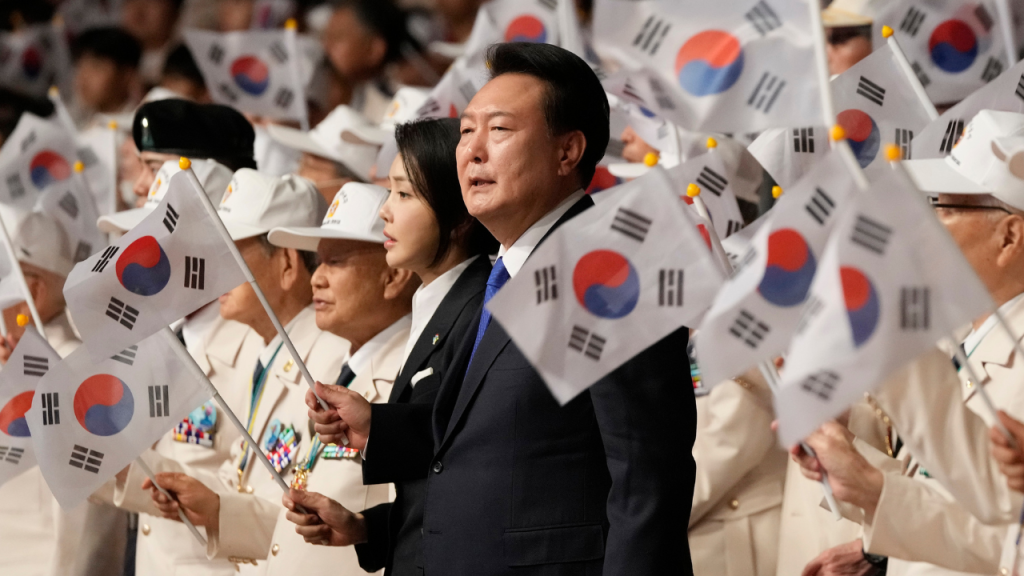The political landscape of South Korea has been dramatically reshaped by the impeachment of President Yoon Suk Yeol, a consequence of his controversial and short-lived imposition of martial law earlier this month. The National Assembly voted 204-85 in favor of impeachment, suspending Yoon’s presidential powers and duties pending the Constitutional Court’s review. This unprecedented move has plunged the nation into a period of profound uncertainty, with the court now holding the power to either reinstate Yoon or definitively remove him from office. This impeachment marks a significant turning point in Yoon’s presidency, which has been plagued by declining approval ratings and escalating public discontent. The ramifications of this decision extend beyond the political sphere, impacting diplomatic relations, financial markets, and the overall stability of the East Asian nation.
The impeachment vote followed weeks of escalating tensions and public protests sparked by Yoon’s martial law declaration on December 3rd. This declaration, the first in over four decades, lasted a mere six hours but sent shockwaves through the country. Parliament swiftly and unanimously voted to overturn the decree, forcing Yoon to retract it. However, the damage was done. The incident ignited widespread public anger, fueling calls for Yoon’s resignation and culminating in the impeachment proceedings. Yoon’s justification for the martial law declaration remains a point of contention, with critics arguing it was an overreach of power and a dangerous precedent. The incident exposed deep political divisions within the country and highlighted the fragility of democratic institutions in the face of executive action.
The impeachment process now enters a crucial phase, with the Constitutional Court holding the ultimate authority to determine Yoon’s fate. The court has up to 180 days to deliberate and reach a verdict. If the court upholds the impeachment, South Korea will be forced to hold a snap presidential election within 60 days to choose Yoon’s successor. This would mark a significant disruption to the country’s political calendar and further exacerbate the existing political instability. The court’s decision will have far-reaching consequences, shaping not only the future of the presidency but also the direction of South Korean politics in the years to come.
Yoon’s actions during the brief period of martial law have drawn intense scrutiny and sparked investigations into potential criminal wrongdoing. He deployed hundreds of troops and police officers to the parliament in an apparent attempt to obstruct the vote to overturn his decree. While no major violence erupted, the move was widely condemned as an assault on democratic processes. Yoon is now facing investigations into possible charges of rebellion, abuse of power, and other offenses related to the martial law declaration. While the presidential privilege of immunity protects him from prosecution in most cases, it does not extend to allegations of rebellion or treason. This leaves Yoon vulnerable to potential legal action, a highly unusual situation for a sitting president.
The investigations into the martial law incident have already ensnared several high-ranking officials, including Yoon’s defense minister, police chief, and the head of Seoul’s metropolitan police agency, all of whom have been arrested. Other senior military and government officials are also under investigation. The breadth and depth of these investigations underscore the seriousness of the allegations and the potential for widespread repercussions within the government and military. The investigations will likely continue for an extended period, further destabilizing the political landscape and adding to the uncertainty surrounding the future of the presidency.
The political crisis in South Korea, sparked by Yoon’s martial law declaration and culminating in his impeachment, has exposed deep divisions within the country. Public protests and counter-protests have become a regular occurrence, reflecting the polarized opinions on Yoon’s leadership and the appropriateness of his actions. The international community is closely watching the unfolding events, concerned about the potential impact on regional stability and the future of democracy in South Korea. The impeachment process will undoubtedly be a defining moment for the country, shaping its political trajectory and testing the resilience of its democratic institutions. The outcome will have significant implications not only for South Korea but also for the broader geopolitical landscape of East Asia.


